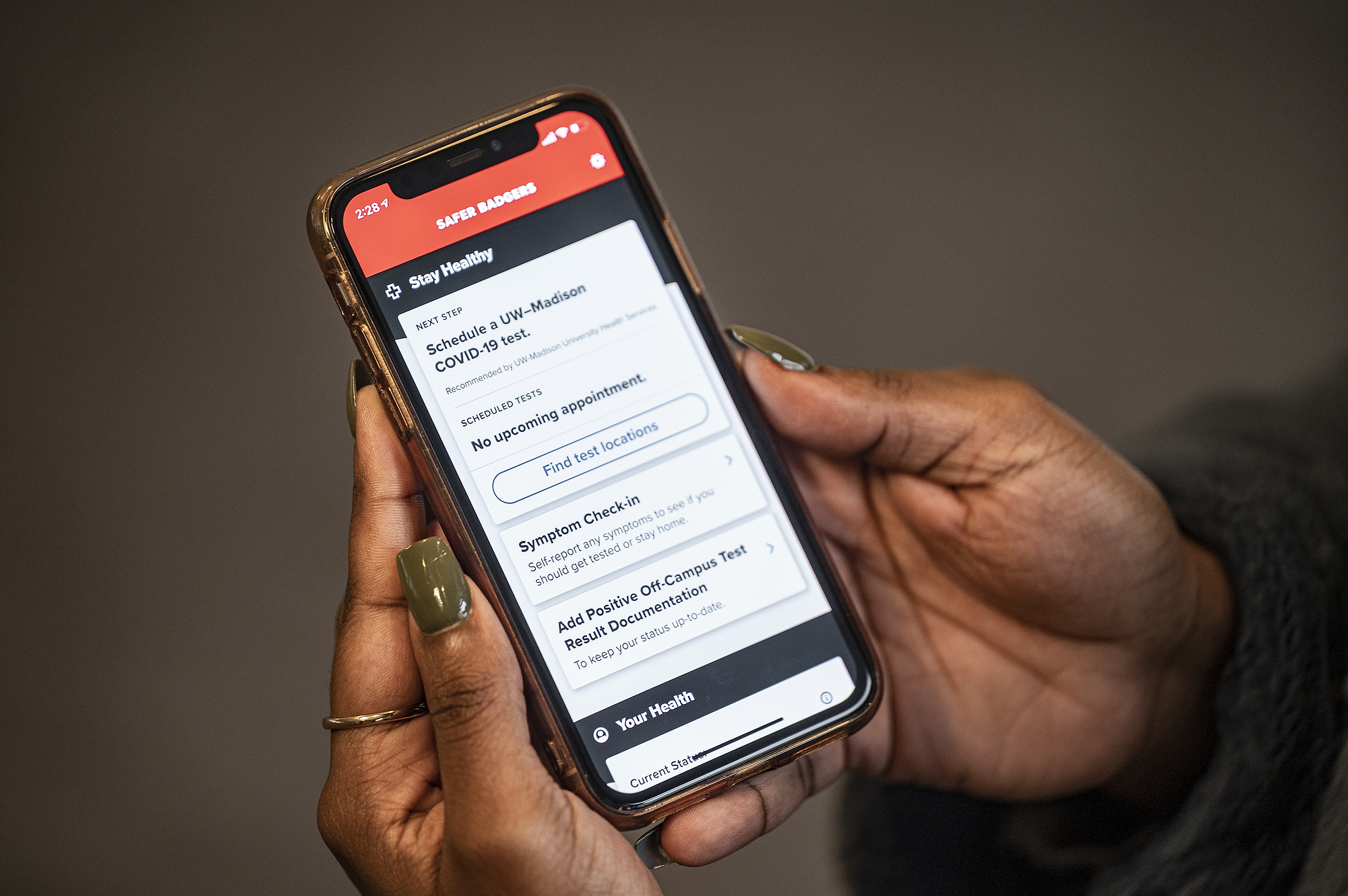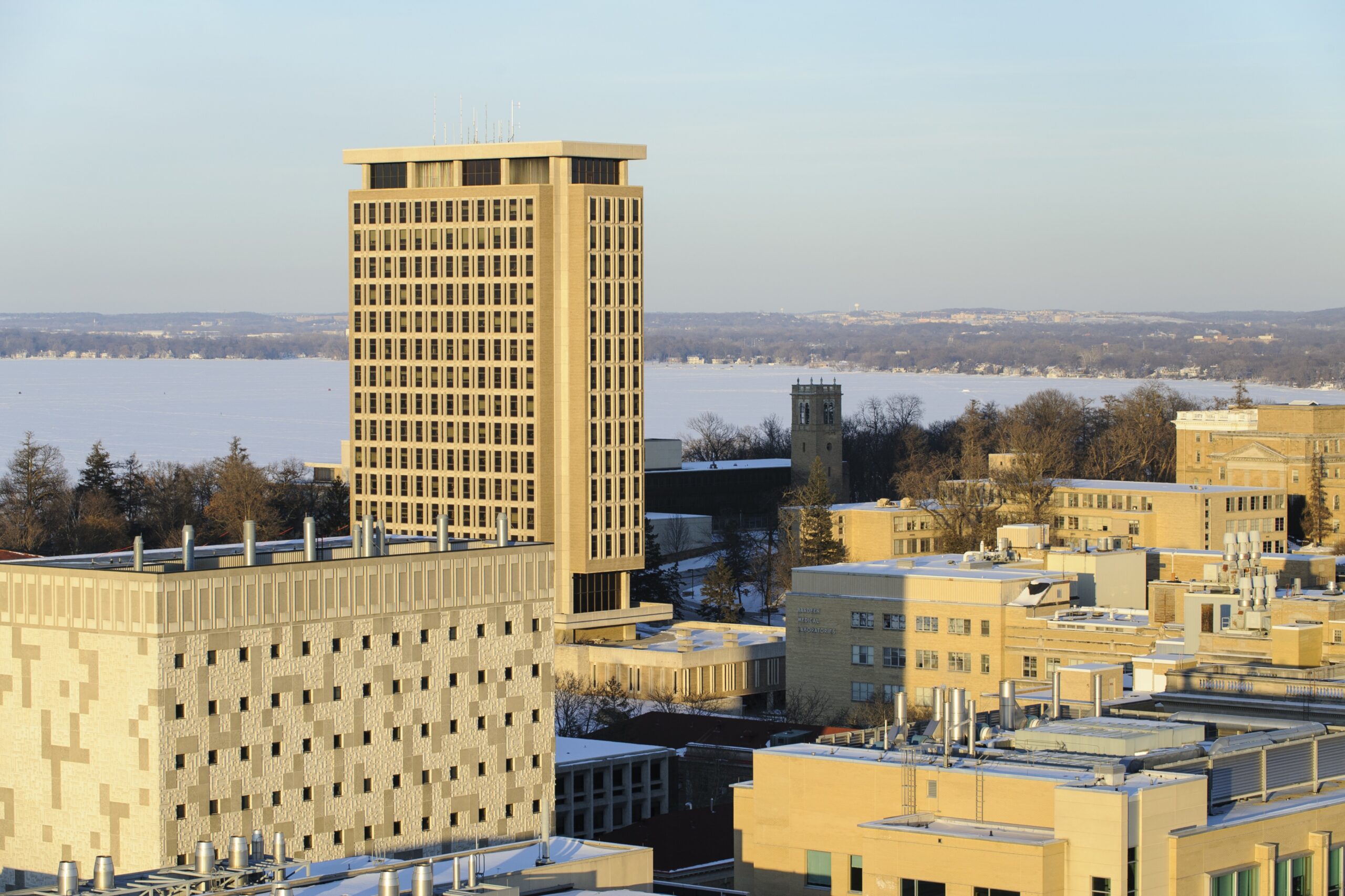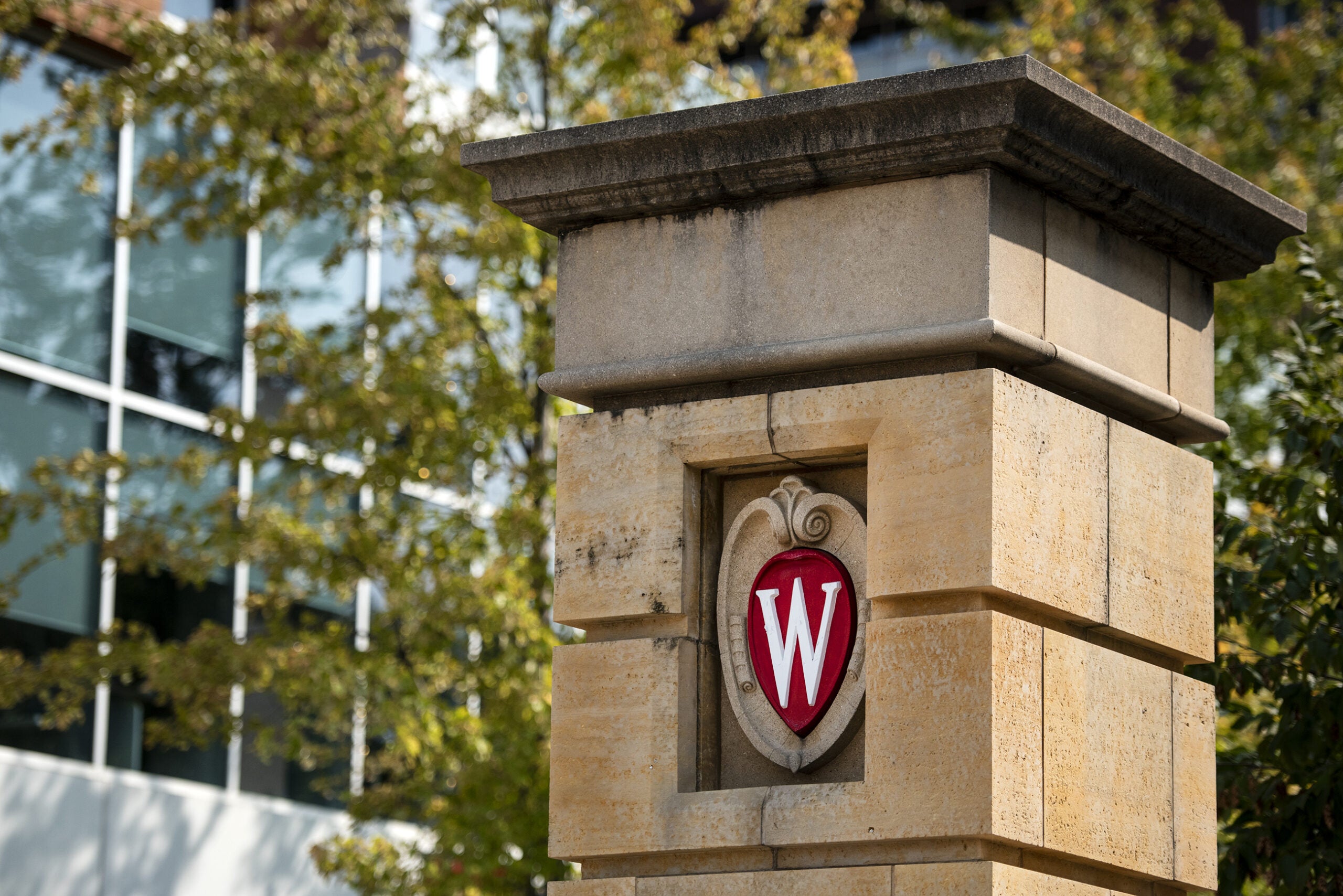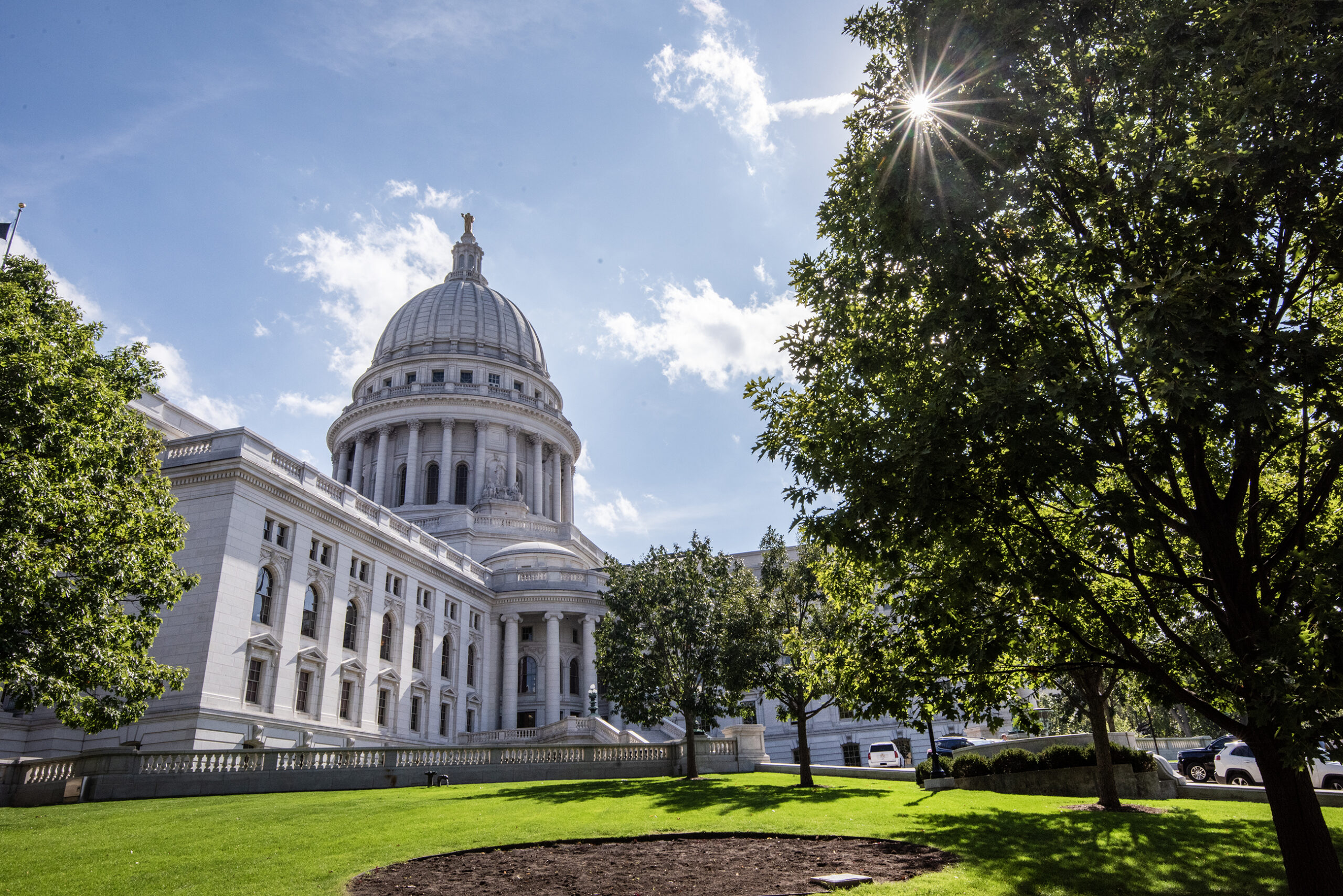Republican lawmakers from western Wisconsin are hoping to ban mandatory COVID-19 testing and vaccination at University of Wisconsin System and Wisconsin Technical College System campuses.
On May 6, state Sen. Rob Stafsholt, R-New Richmond, sent an email to legislative colleagues seeking cosponsors for a bill that would prohibit the state’s universities and technical colleges from requiring regular coronavirus testing or vaccination in order to attend classes or access campus buildings.
Stafsholt and state Rep. Gae Magnafici, R-Dresser, who is sponsoring the bill in the Assembly, wrote that they’ve heard from “constituents and students” expressing concerns with the current UW System policy requiring testing for those who haven’t been vaccinated.
Stay informed on the latest news
Sign up for WPR’s email newsletter.
“It raises concern as to the possibility that this UW-System policy invades these students’ medical information privacy,” the lawmakers wrote. “This bill returns vaccination and testing decisions back to the individuals and maintain their medical information privacy.”
In an interview with WPR, Stafsholt said he’s spoken with parents who feel like they were left out of the discussion surrounding testing requirements at UW campuses. He expects Gov. Tony Evers would likely veto the bill, but said his hope is to bring more voices into the decision-making process.
“Hopefully this legislation gets everybody at the table to have a discussion about policy,” said Stafsholt.
In February, UW-Madison started restricting access to campus buildings unless students and staff could prove they recently tested negative for COVID-19 via a smartphone app. Those restrictions were eased May 10.
At other UW campuses, testing requirements originally only applied to students living in dorms, but some campuses have expanded testing rules to other student populations.
This spring, UW System interim President Tommy Thompson announced he would waive regular testing requirements for all students and staff who prove they are fully vaccinated against the coronavirus. Thompson said his goal was to get 90 percent of students vaccinated before they leave campuses for summer break.
Stafsholt said he doesn’t believe there’s any ill intent behind the testing requirements or the vaccination incentive, but he remains uneasy about the policies.
“I think proving that you’ve had a vaccine to get out of mandatory testing approaches right up to the line of vaccine passports, which many of my constituents are also against,” said Stafsholt.
Wisconsin Technical College System spokesperson Conor Smyth said there is no system-wide policy on testing or vaccinations, be he doesn’t believe the legislation “would be an issue for Wisconsin’s 16 technical colleges” since those operations are governed by local boards.
Thompson was not available for comment on the Republican bill. WPR sent interview requests to communications staff at the state’s 13 UW System universities seeking comment from chancellors. Most didn’t respond. Others deferred to UW System Administration for comment.
UW System spokesperson Mark Pitsch said mandatory and robust testing was essential to ensure “the safest possible return to an in-campus person experience” for students and surrounding communities this year.
“With a goal of 75 percent in-person classes this fall, we must provide a safe environment for our faculty, staff, and students, knowing that our vibrant, open campuses are economic engines in their communities,” said Pitsch. “Testing has been a key part of this effort. Legislation that erodes our ability to safely welcome students to campus or protect our communities impedes our plans to open to pre-pandemic levels.”
Stafsholt and Magnafici are seeking cosponsors for their proposed legislation through Friday. In February, the governor vetoed a broad COVID-19 bill that would have banned vaccine mandates in the state.
Wisconsin Public Radio, © Copyright 2024, Board of Regents of the University of Wisconsin System and Wisconsin Educational Communications Board.





